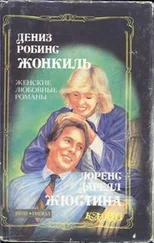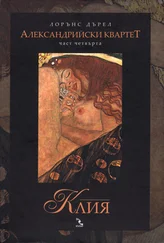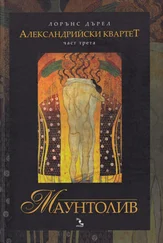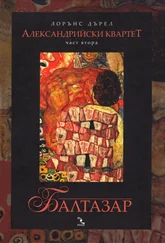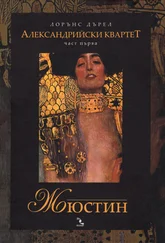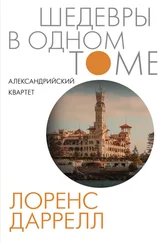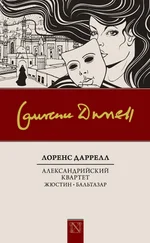Лоренс Даррелл - Prospero's Cell
Здесь есть возможность читать онлайн «Лоренс Даррелл - Prospero's Cell» весь текст электронной книги совершенно бесплатно (целиком полную версию без сокращений). В некоторых случаях можно слушать аудио, скачать через торрент в формате fb2 и присутствует краткое содержание. Жанр: Проза, на английском языке. Описание произведения, (предисловие) а так же отзывы посетителей доступны на портале библиотеки ЛибКат.
- Название:Prospero's Cell
- Автор:
- Жанр:
- Год:неизвестен
- ISBN:нет данных
- Рейтинг книги:4 / 5. Голосов: 2
-
Избранное:Добавить в избранное
- Отзывы:
-
Ваша оценка:
- 80
- 1
- 2
- 3
- 4
- 5
Prospero's Cell: краткое содержание, описание и аннотация
Предлагаем к чтению аннотацию, описание, краткое содержание или предисловие (зависит от того, что написал сам автор книги «Prospero's Cell»). Если вы не нашли необходимую информацию о книге — напишите в комментариях, мы постараемся отыскать её.
Prospero's Cell — читать онлайн бесплатно полную книгу (весь текст) целиком
Ниже представлен текст книги, разбитый по страницам. Система сохранения места последней прочитанной страницы, позволяет с удобством читать онлайн бесплатно книгу «Prospero's Cell», без необходимости каждый раз заново искать на чём Вы остановились. Поставьте закладку, и сможете в любой момент перейти на страницу, на которой закончили чтение.
Интервал:
Закладка:
'High up above me when I look up from this pad I see two villages with cypresses on crags above us; where the ancient temple was is now a small white-washed church — nothing has really changed as you said. And the crags are alive with golden broom. Kestrels hover and shriek over the blue gulf. A girl minds her sheep and is friendly. Here it is the habit to keep a flower dangling in the teeth — to set off the wonderful flashing smile.
'This morning when we went down for a bathe we found the abbot of a local monastery sitting on a rock fishing for dear life. He accepted a sandwich with great politeness and exchanged it for a cigarette which he took from his stove-pipe hat, which meant that he untidied his hair; he had to comb it out again and restore the bun at the back.
'So you see how terribly unearthly we are becoming, just three days in this haunted grove. And of course we have given your love to everyone here.'
3.8.37 Father Nicholas is a great mythological character. He is a bigboned rosy-faced old man of close on sixty-five. He likes to sit and boast by the edge of the sea on calm days, like an Ionian Canute. He is the author of three fine sons, one of whom is young Nicholas the village schoolmaster. Under his pendulous trumpeter's cheeks, under the sculptured fall of the great moustache, his mouth is always smiling. He still wears the blue pantaloons, and curving Turkish slippers of the older generation, and he is pedantic about the whiteness of his three heavy silk shirts, two of which are always out on the line being watched over by his timid, retiring wife. Father Nicholas sits manfully in the shadow of his own vine, prodding the grapes from time to time with his oak stick — in a faintly sardonic manner, as if to dare them to ripen. He has the goodhumoured scolding manner — the scornful affection — which is the mark of the finest Greek temperament. He boasts and boasts. The story of his sailing voyages have become a sort of saga in his own mind; and when he begins a tale it is always to show how worthless the Ionians have become as sailors since the Diesel engine was imported. As he talks he consumes cup after cup of red wine, which is brought for him from a rapidly emptying keg in the magazine. His long nose ravens over the heavy Kastellani wine — his favourite brew. He illustrates his stories by drawing in the earth with his stick. The lack of variation in them is astonishing. In every one of them he is returning from Goumenitsa with a load of wood when he is overtaken by an immense 'fortuna'; everything goes overboard to lighten the craft; amidst thunder and lightning the ikon of Spiridion is consulted, but on this occasion the Saint is about other business because while they are praying a waterspout stoves in the boat. Father Nicholas at this point leaves the tiller and goes overboard clutching an armful of kindling (it is astonishing how few of these islanders can swim), which bears him up until he is washed ashore next day at Govino. All the crew perish, and the wife of Socrates, the mate, who is a woman of remarkable saintliness, is washed up two days later in Kouloura harbour. Her hands are folded on her breast and her eyes shut — Father Nicholas at this point folds his own hands, closes his eyes, and assumes an expression of saintly resignation. He is extremely affected by his own narrative, and wipes his eye in his sleeve, calling for more wine as he does so.
It goes without saying that Father Nicholas is an extremely cautious sailor; picking his wind, he occasionally makes an autumn trip over the water to Albania to gather a bit of fuel. But the slightest inequality of weather makes him run for harbour with a frantic and undignified haste. At home he is the complete autocrat, and spends all morning on the sunny terrace with a little plate of figs, bread, and olives before him.
He is occasionally guilty of an aphorism which sounds as if it were a proverb adapted by himself to suit his own experience. He enjoys uttering blood-curdling threats against his wife in the hearing of strangers, and she repays these with her quick sad smile and a remark which could only be translated as: 'Get along with you now.'
'Women', he grumbles, 'should be beaten like an olive-tree; but in Corfu neither the women nor the olive — tree are beaten — because of the terrible laziness of everyone.'
We have given Nicholas a set of chessmen, and Theodore has managed to teach the game to the old man, who is delighted. Unlettered as he is, he plays chess with tremendous imagination and certainty. When Theodore comes to stay he always strolls across to the little vine-wreathed balcony and challenges Father Nicholas to a game. More often than not he loses — and when this happens the old man becomes flushed with triumph, and begins to boast more than ever. 'What good are letters,' he rumbles affectionately, 'and learning? Everything you have in your head, doctor, is little use against the wide-awakeness of the Romeos — the Greek.'
Theodore takes it meekly and in very good part. 'My learning tells, O Nicholas,' he replies, 'that if you continue to drink wine like this you will have an affection of the foot — which we have no name for in Greek. But it will be painful.'
'Bah,' says Father Nicholas equably. 'Since you cannot get the better of me in this game of bishops and kings, how can I believe you in other matters?'
In this flow of banter they disguise their affection for each other; for when Theodore is hunting for malaria specimens Father Nicholas will walk miles besides him to show him the location of a particular pond or well. While, whenever illness visits the family, either the sufferer or a letter is despatched at once by caigue to Theodore in his laboratory. And we, as Theodore's friends, have become partly involved in these questions of the community's health. The encyclopaedia, a medicine chest, and a thermometer enable N. to perform miracles of diagnosis. So far we have successfully diagnosed two cases of whooping cough, one malaria, one case of rheumatic fever, and a case of incipient rickets due to malnutrition.
15.11.37
You wake one morning in the late autumn and notice that the tone of everything has changed; the sky shines more deeply pearl, and the sun rises like a ball of blood — for the peaks of the Albanian hills are touched with snow. The sea has become leaden and sluggish and the olives a deep platinum grey. Fires smoke in the villages, and the breath of Maria as she passes with her sheep to the headland, is faintly white upon the air. All morning she will sit crouched among the bracken and myrtle, singing in her small tired witch's voice, while the sheep-bells clonk dully around her. She is clad in a patchwork of rags, and leather slippers. In her hands she holds the spinning-bobbin upon which she is weaving her coarse woollen thread. Later on the treadle-loom in the magazine Helen will weave the coarse coloured blankets which the shepherd boys take into the hills with them where they mind their sheep in the deeper winter approaching. Maria watches the younger women picking olives through her wrinkled violet eyes and spits contemptuously before taking up her little song — which is about two ravens sitting in an olive-tree. Golden eagles hover in the grey. The cypresses hang above their own reflections like puffs of frozen grey smoke. Far out in the straits the black shape of a boat sits motionless — or dragging slowly and uncouthly with the flash of oars — like an insect upon a leaf. Now is the time to break logs for the great fireplace we have built ourselves, and smell the warm enriching odour of cypress wood, tar, varnish and linseed oil. It is time to prepare for the first gale of tears and sunsets from Albania and the East.
IV. KARAGHIOSIS: THE LAIC HERO
We tie up at the old port on Tuesday and find little Ivan Zarian dancing down the great staircase under the lion of St. Mark to meet us. He has been waiting to tell us the great news. Karaghiosis has come to town and there is to be a performance this evening. All the children of the town and of course numbers of peasants will be there. We send Spiro to book seats for us all, and spend the afternoon sitting on the esplanade drinking lemonade in the white pure sunshine, and listening to clinking of ice in glasses around us. It is one of the innumerable Saints' days, and as such a whole holiday. The cafйs are crowded, and the green grass of the Esplanade studded with the gay clothes of the Corfiot girls. Zarian, aroused from the abstraction into which his weekly Armenian literary article always throws him, discourses amiably about the art of the shadow-play. He has come across Karaghiosis under different guises in Turkey and in the Middle East, where the little black-eyed man wore, instead of his enormous prehensile baboon's arm, a phallus of equal dimensions. Translated into Greek he is no longer a symbol of pornographic buffoonery but something much more subtle — the embodiment of Greek character. It is a fertile theme. National character, says Zarian, is based upon the creations of the theatre. Huxley has remark somewhere that Englishmen did not know how the Englishman should behave like until Falstaff was created; now the national character is so well established that everyone knows what to expect in the average Englishman. But what about the Greeks? Their national character is based on the idea of the impoverished and downtrodden little man getting the better of the world around him by sheer cunning. Add to this the salt of a self. deprecating humour and you have the immortal Greek. A man of impulse, full of boasts, impatient of slowness. quick of sympathy, and inventive as well as assimilative. A coward and a hero at the same time; a man torn between his natural and heroic genius and his hopeless power of ratiocination.
Читать дальшеИнтервал:
Закладка:
Похожие книги на «Prospero's Cell»
Представляем Вашему вниманию похожие книги на «Prospero's Cell» списком для выбора. Мы отобрали схожую по названию и смыслу литературу в надежде предоставить читателям больше вариантов отыскать новые, интересные, ещё непрочитанные произведения.
Обсуждение, отзывы о книге «Prospero's Cell» и просто собственные мнения читателей. Оставьте ваши комментарии, напишите, что Вы думаете о произведении, его смысле или главных героях. Укажите что конкретно понравилось, а что нет, и почему Вы так считаете.

